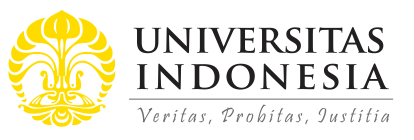
Abstract
This article presents a framework of transformational community engagement strategy which has been implemented by Dharma Bhakti Astra Foundation (YDBA). It discusses the process under which a large company institutionalizes its CSR strategy, policy and actions in developing small and medium enterprises (SMEs). Since 1980 the company has strengthened the capacity of 10,374 SMEs which created 65,855 jobs by 2017. The paper shows the linkages between the concepts of corporate social responsibility (CSR), transformational community engagement, social capital and sustainability performance of a company. This study applies a qualitative case study to investigate why and how one of the largest public listed companies in Indonesia decides to play a role in developing SMEs as its CSR program; how the transformational community engagement strategy is used in implementing the CSR program; and how the SME programs contributes to the company’s triple bottom line through social capital development. The study finds that a large company can complement the government’s roles in SME development, by sharing its knowledge and expertise, providing finance and market access, as well as building social capital for SMEs. By doing so, the company enables SMEs to participate in economic activities and work collaboratively with the company in achieving sustainability performance for both the SME and the company. The conceptual framework developed from this study contributes to the theory by clarifying the linkages between the concepts of CSR program, community engagement and social capital. In practice, the framework can help business practitioners to design their CSR programs through community engagement. In reality, the ASEAN Business Advisory Council meeting in 2017 had considered YDBA’s SME development program as a role model for other large companies operating in the region.
References
Amnon, B. (2004). The Participation of Businesses in Community Decision Making. Business and Society, 44(2), 144-177.
Astra International. (2015). Sustainability Report 2015: Building Resilience Responsibly. Jakarta: Indonesia.
Basu, K. & Palazzo, G. (2008). Corporate social responsibility: A process model of sensemaking. Academy of Management Review, 33(1), 122–136.
Baxter, P. & Jack, S. (2008). Qualitative Case Study Methodology: Study Design and Implementation for Novice Researchers. The Qualitative Report, 13(4), 544-559.
Bhinekawati, R. (2017). Corporate Social Responsibility and Sustainable Development: Social Capital and Corporate Development in Emerging Economies. Oxon, UK: Routledge.
Bhinekawati, R. & Asgha, B. (2018). Social Capital as Value Creation and Delivery of a Sustainable Business Model: A Case Study from Indonesia. In L. Moratis, F. Melissen ,S.O. Idowu (Eds.). Sustainable Business Models: Principles, Promise, and Practice. (pp. 305-327). USA: Springer International Publishing.
Bhinekawati, R. (2018). The linkages between CSR, social capital, and small enterprise development in a large company's supply chain. In D. Crowther, S. Shelfi, A. Moyen (Eds). The Goals of Sustainable Development: Responsiblity and Governance, (pp. 157-178). Singapore: Springer Nature.
Bowen, F. (2007). Corporate social strategy: competing views from two theories of the firm. Journal of Business Ethics, 75(1), 97-113.
Bowen, F., Newenham–Kahindi, A. & Herremans, I (2010) When suits meet roots: the antecedents and consequences of community engagement strategy. Journal of Business Ethics, 95 (2), pp. 297-318.
Bourdieu, P. (1986). The forms of capital. In J. Richardson (Ed.), Handbook of theory and research for the sociology of education (pp. 241–258). New York: Greenwood Press.
Carroll, A. B. (1979). A three-dimensional conceptual model of corporate performance. The Academy of Management Review, 4(4), 497–505.
Coleman, J. (1990). Foundations of social theory. Cambridge, MA: Harvard University Press.
Davis, K. (1973). The case for and against business assumption of social responsibilities. Academy of Management Journal, 16, 312−322.
Edwards, M. (2005). Getting to the roots of the problems. Retrieved 10 March 2015, from http://wwf.panda.org/who_we_are/wwf_offices/indonesia/environmental_problems_indonesia/.
Eisenhardt, K. (1989). Building theories from case study research. Academy of Management Review, 14(4), 532–550.
Eisenhardt, K. & Graebner, M. (2007). Theory building from cases: Opportunities and challenges. Academy of Management Journal, 50(1), 25–32.
Elkington, J. (1997). Cannibals with forks: The triple bottom line of 21st century business. Mankato, MN: Capstone.
Freeman. R. E. (2010). Strategic management: A stakeholder approach. New York: Cambridge University Press.
Fukuyama, F. (1995). Trust: The social virtues and the creation of prosperity. New York: Free Press.
Hart, S. L., Milstein, M. B. & Caggiano, J. (2003). Creating sustainable value [and Executive Commentary]. The Academy of Management Executive, 17(2), 56–69.
Lin, N. (1999). Building a network theory of social capital. Connections, 22(1), 28−51.
Porter, M. & Kramer, M. (2006). Strategy and society: The link between competitive advantage and corporate social responsibility. Harvard Business Review (Reprint R0612D), 1–17.
London, T. & Hart, S.L. (2004). Reinventing strategies for emerging markets: Beyond the transnational model. Journal of International Business Studies, 35(5), 350−70.
McKinsey Global Institute. (2012). The archipelago economy: Unleashing Indonesia's potential. Washington, DC: McKinsey & Company.
Miles, M. B. & Huberman, A. M. (1994). Qualitative data analysis: An expanded sourcebook (2nd ed.). Thousand Oaks: Sage.
Patton, M. (1990). Qualitative Evaluation and Research Methods. Beverly Hill, CAS: Sage.
Putnam, R. D. (1995). Bowling alone: America's declining social capital. Journal of Democracy, 6(1), 65–78.
Scantlebury, M. (2003). The ownership structures of heritage toursim enterprise in Barbados and their institutional and community involvement. Waterloo: University of Waterloo.
Stake, R. E. (2000). Case studies. In N. K. Denzin & Y. S. Lincoln (Eds.), Handbook of qualitative research (2nd ed.) (pp. 443–466). Thousand Oaks: Sage Publications, Inc.
Szreter, S. & Woolcock, M. (2004). Health by association? Social capital, social theory, and the political economy of public health. International Journal of Epidemiology, 33, 650–667.
Tambunan, T. (2008). SME development, economic growth, and government intervention in a developing country: The Indonesian story. Journal of International Entrepreneurship, 6, 147–167.
Tambunan, T. (2009). Promoting innovation in SMEs through transfer of technology. Tech Monitor (Jul–Aug 2009), 30–36.
UNDP (2014). Human Development Report 2014: Sustaining human progress, reducing vulnerabilities and building resilience. New York: United Nations Development Programme.
Uphoff, N. (Ed.). (2000). Understanding social capital: Learning from the analysis and experience of participation. Washington DC: World Bank.
YDBA (2017). YDBA Essentials. Jakarta: YDBA
YDBA (2017). Sharing YDBA di ASEAN Mentorship for Entrepreneurs Network. Retrieved 10 March 2018 from http://www.ydba.astra.co.id/mainnews/53/sharing-ydba-di-asean-mentorship-for-entrepreneurs-network
Yin, R. K. (2003). Applications of case study research (2nd ed.). Thousand Oaks, CA: Sage.
Yin, R. K. (2009). Case study research: Design and methods (4th ed.). London: Sage.
Recommended Citation
Bhinekawati, Risa
(2018).
A model of a large company’s CSR and transformational community engagement strategy for SME development.
ASEAN Journal of Community Engagement, 2(2).
Available at: https://doi.org/10.7454/ajce.v2i2.130







